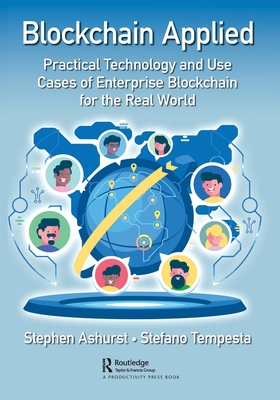-
出版商:
MIT Connection Science & Engineering
-
出版日期:
2021-10-12
-
售價:
$1,740
-
貴賓價:
9.5 折
$1,653
-
語言:
英文
-
頁數:
474
-
裝訂:
Quality Paper - also called trade paper
-
ISBN:
026254315X
-
ISBN-13:
9780262543156
商品描述
How to empower people and communities with user-centric data ownership, transparent and accountable algorithms, and secure digital transaction systems. Data is now central to the economy, government, and health systems--so why are data and the AI systems that interpret the data in the hands of so few people?
Building the New Economy calls for us to reinvent the ways that data and artificial intelligence are used in civic and government systems. Arguing that we need to think about data as a new type of capital, the authors show that the use of data trusts and distributed ledgers can empower people and communities with user-centric data ownership, transparent and accountable algorithms, machine learning fairness principles and methodologies, and secure digital transaction systems.
It's well known that social media generate disinformation and that mobile phone tracking apps threaten privacy. But these same technologies may also enable the creation of more agile systems in which power and decision-making are distributed among stakeholders rather than concentrated in a few hands. Offering both big ideas and detailed blueprints, the authors describe such key building blocks as data cooperatives, tokenized funding mechanisms, and tradecoin architecture. They also discuss technical issues, including how to build an ecosystem of trusted data, the implementation of digital currencies, and interoperability, and consider the evolution of computational law systems.
商品描述(中文翻譯)
如何透過以使用者為中心的數據擁有權、透明且負責任的演算法,以及安全的數位交易系統來賦能人們和社區。
數據現在是經濟、政府和健康系統的核心,那麼為什麼數據和解釋數據的人工智慧系統卻掌握在少數人手中?《重建新經濟》呼籲我們重新思考數據和人工智慧在公民和政府系統中的使用方式。作者主張我們需要將數據視為一種新型資本,並展示使用數據信託和分散式帳本可以賦能人們和社區,實現以使用者為中心的數據擁有權、透明且負責任的演算法、機器學習公平原則和方法論,以及安全的數位交易系統。
眾所周知,社交媒體會產生錯誤資訊,而手機追蹤應用程式則威脅到隱私。但這些相同的技術也可能促進更靈活的系統的創建,在這些系統中,權力和決策在利益相關者之間分配,而不是集中在少數人手中。作者提供了大構想和詳細藍圖,描述了數據合作社、代幣化資金機制和交易幣架構等關鍵構建塊。他們還討論了技術問題,包括如何建立可信數據的生態系統、數位貨幣的實施和互操作性,並考慮計算法系統的演變。
作者簡介
Alex "Sandy" Pentland directs the MIT-wide initiative MITConnection Science. Called one of the "seven most powerful data scientists in the world" by Forbes, he has cofounded more than a dozen companies and is the author of Honest Signals (MIT Press) and Social Physics. Alexander Lipton is Professor and Dean's Fellow at the Jerusalem Business School at the Hebrew University of Jerusalem, Cofounder and Chief Information Officer at Sila, and Connection Fellow at MIT. Thomas Hardjono is Technology Director of the MIT Connection Science and the MIT Trust:: Data Consortium.
作者簡介(中文翻譯)
亞歷克斯·「桑迪」·彭特蘭德(Alex 'Sandy' Pentland)負責麻省理工學院(MIT)全校的MITConnection Science計畫。他被《福布斯》評選為「全球七位最強大的數據科學家」之一,並共同創辦了十多家公司,著有《Honest Signals》(麻省理工學院出版社)和《Social Physics》。亞歷山大·利普頓(Alexander Lipton)是耶路撒冷希伯來大學耶路撒冷商學院的教授及院長研究員,Sila的共同創辦人及首席信息官,並且是麻省理工學院的Connection Fellow。托馬斯·哈吉諾(Thomas Hardjono)是MIT Connection Science及MIT Trust:: Data Consortium的技術總監。






















